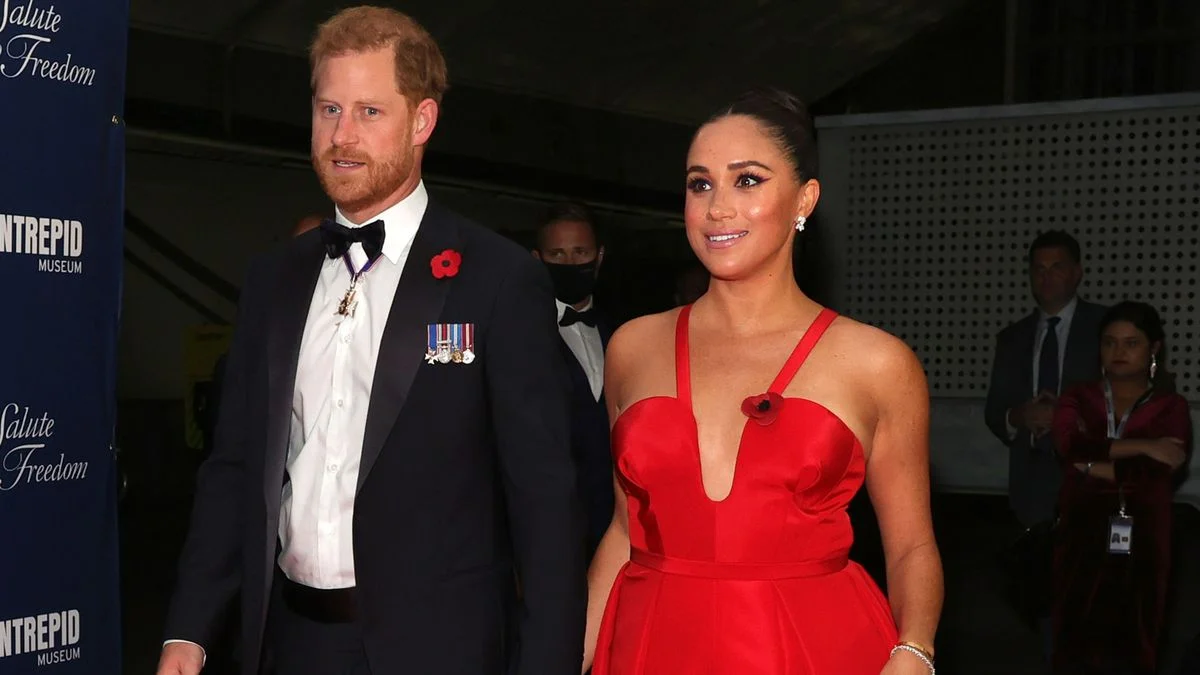Prince Harry, known for his prominent role within the British royal family, has recently captured public attention with a display of vulnerability during a joint public appearance with his wife Meghan Markle. The couple attended the Salute for Freedom Gala, an event that they also graced with their presence the previous year. However, this time around, Prince Harry’s demeanor seemed markedly different, revealing a side of him that is often not seen in the spotlight.
The intimate portrayal of Prince Harry’s vulnerability was captured in a scene from his newly released Netflix docuseries titled “Heart of Invictus.” In this particular moment, Prince Harry engages in a candid conversation with Meghan Markle, revealing his inner apprehension. He confesses, “We haven’t done this in a while,” a statement that hints at his unease about addressing the public.
The nuanced expertise of body language analyst Judi James offers valuable insights into Prince Harry’s behavior during this event. According to James, one scene, in particular, stands out as a revealing interaction between the royal couple. As they walked the red carpet hand in hand, Prince Harry is seen confiding in Meghan, expressing his nervousness. James interprets this gesture as an instance of Prince Harry seeking his wife’s support and affirmation, showcasing his vulnerability and need for reassurance.
The docuseries further provides glimpses of Prince Harry’s preparation behind the scenes, as he physically and emotionally readies himself for his public address. Moments of deep breathing and stretches are captured, reflecting his efforts to overcome his nerves and anxiety before delivering a speech. One particularly moving scene captures Prince Harry delivering a speech with tears in his eyes, unveiling the raw and authentic emotions that lie beneath his public persona.
The episode also features Prince Harry addressing the audience, saying, “Tonight, we are here to honor a group of men and women whose lives are defined by service, purpose, and of course, resilience.”
Prince Harry’s willingness to showcase vulnerability in such a public forum provides a relatable angle to his identity as a royal figure. It underscores the fact that even those in positions of influence and power can experience moments of uncertainty and the need for emotional support. This candid depiction resonates with audiences, reminding us that authenticity and genuine emotions transcend titles and status.




